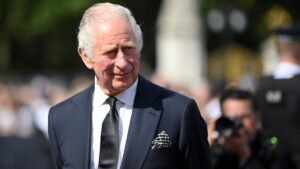Ghana’s foreign minister Shirley Ayorkor Botchwey has been announced as Commonwealth Secretary-General by the 56-nation Commonwealth during a rancorous summit that concluded in Samoa on Saturday.
The Commonwealth, a voluntary association of sovereign states primarily composed of former British colonies, has chosen Ghana’s foreign minister Shirley Ayorkor Botchwey as its new Secretary-General. Botchwey was one of three candidates for the position, all of whom supported calls for Britain to address the legacy of colonialism and slavery.
A seasoned politician, Botchwey has served as Ghana’s foreign minister for the past seven years, guiding the country through a two-year tenure on the UN Security Council, which concludes in December 2023. She has been a vocal advocate for a Commonwealth free trade agreement and has publicly supported reparations. “Financial reparations is good,” she said at an event in London earlier this year.
The role of Secretary-General rotates among the Commonwealth’s four geographical blocs: the Pacific, Asia, Europe, and Africa. With it now being Africa’s turn, Botchwey expressed her gratitude, posting on social media, “Truly humbled by the overwhelming support of the Commonwealth Heads of Government in selecting me as the incoming Secretary-General of the Commonwealth. The work indeed lies ahead!”
The Commonwealth promotes democratic governance, trade cooperation, climate advocacy, and financial transparency. It is headed by King Charles III, but the Secretary-General oversees the London-based secretariat.
Botchwey’s appointment was confirmed at a summit in Samoa, where discussions, initially expected to focus on climate change, shifted towards the contentious issue of reparations. Many African, Caribbean, and Pacific nations are pushing for Britain and other European powers to acknowledge their role in the slave trade and to make political or financial reparations.
The Bahamian Prime Minister, Philip Davis, emphasized the importance of addressing these historical injustices, stating, “The time has come to have a real dialogue about how we address these historical wrongs. Reparatory justice is not an easy conversation, but it’s an important one. The horrors of slavery left a deep, generational wound in our communities, and the fight for justice and reparatory justice is far from over.”
Historians estimate that between 10-15 million Africans were forcibly taken to the Americas over four centuries, with the slave trade officially ending around 1870. Calls for the British royal family to acknowledge its historical ties to the slave trade have increased, but at the summit, King Charles III stopped short of an apology. He urged delegates to “reject the language of division,” acknowledging the lasting pain of the past. “None of us can change the past. But we can commit, with all our hearts, to learning its lessons and to finding creative ways to right inequalities that endure,” he said.



























